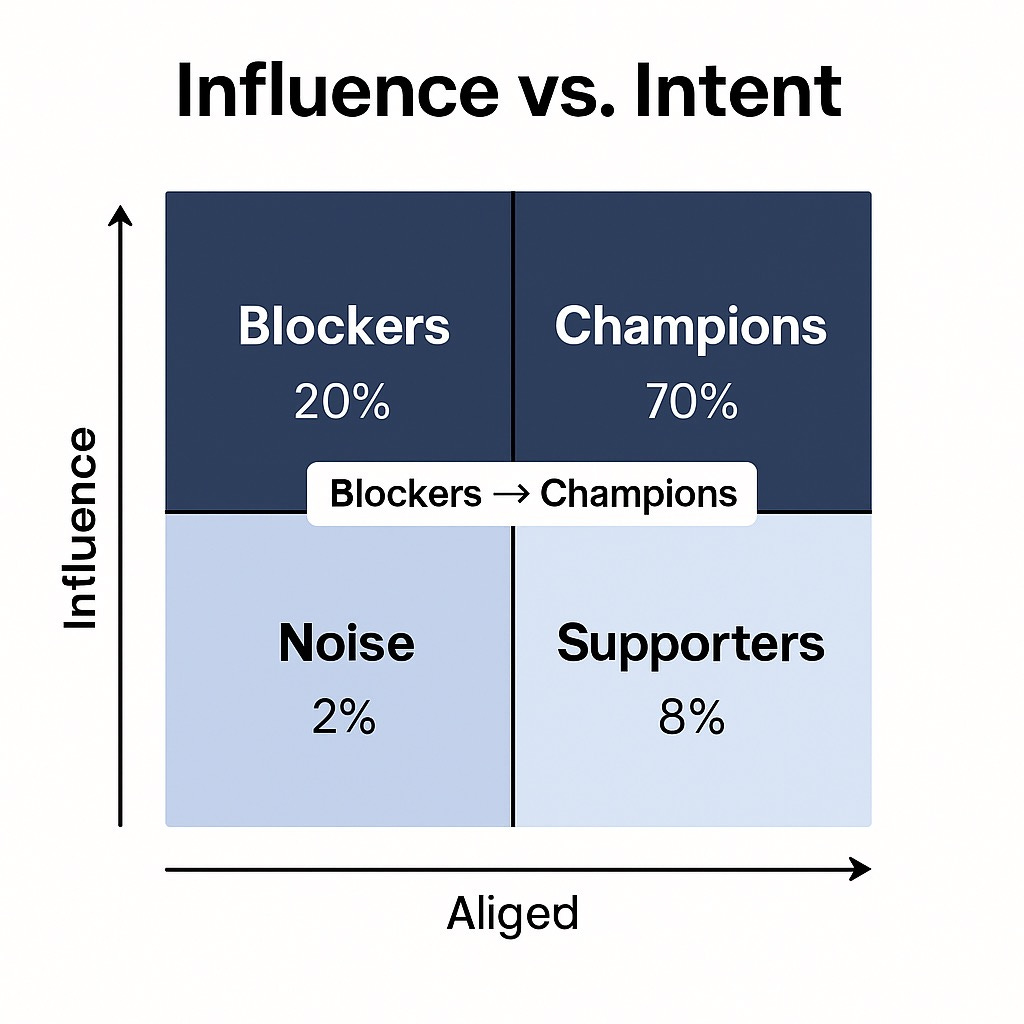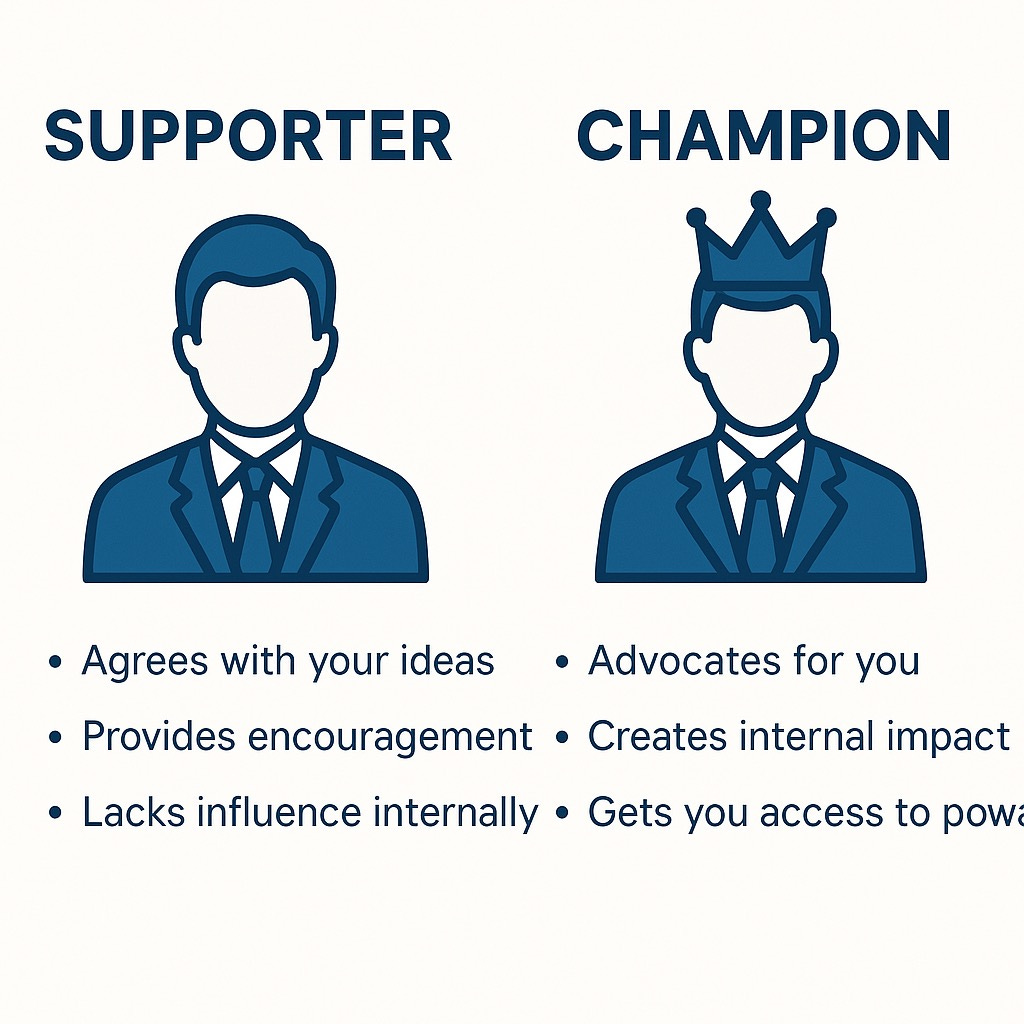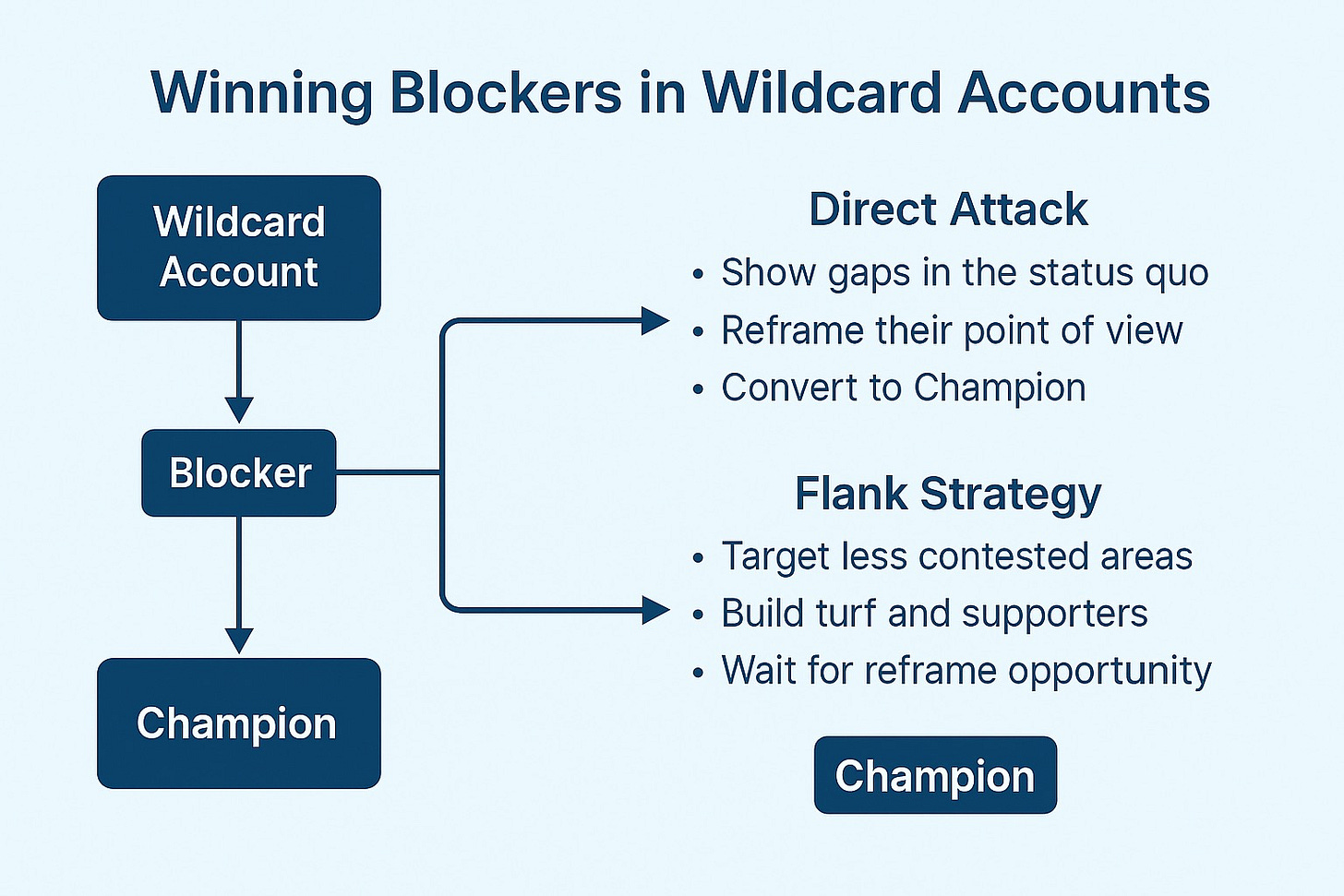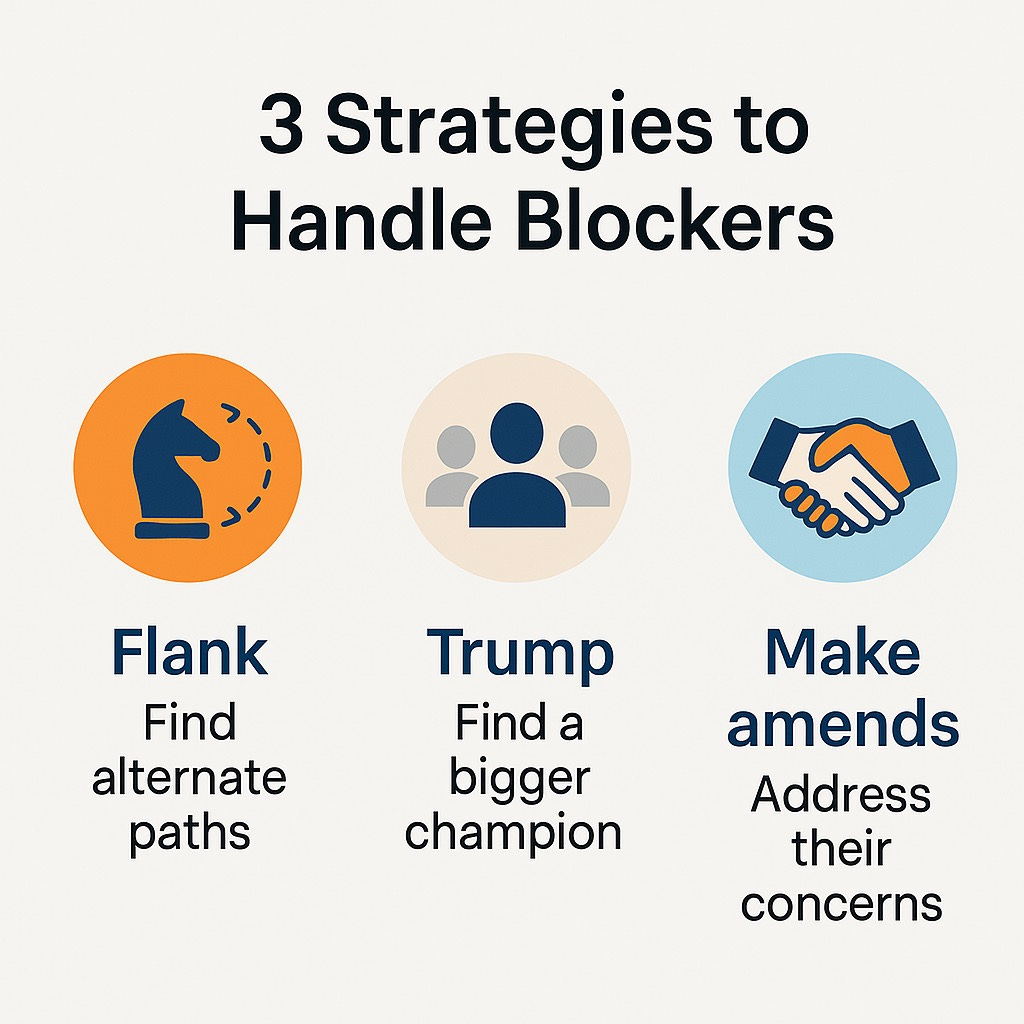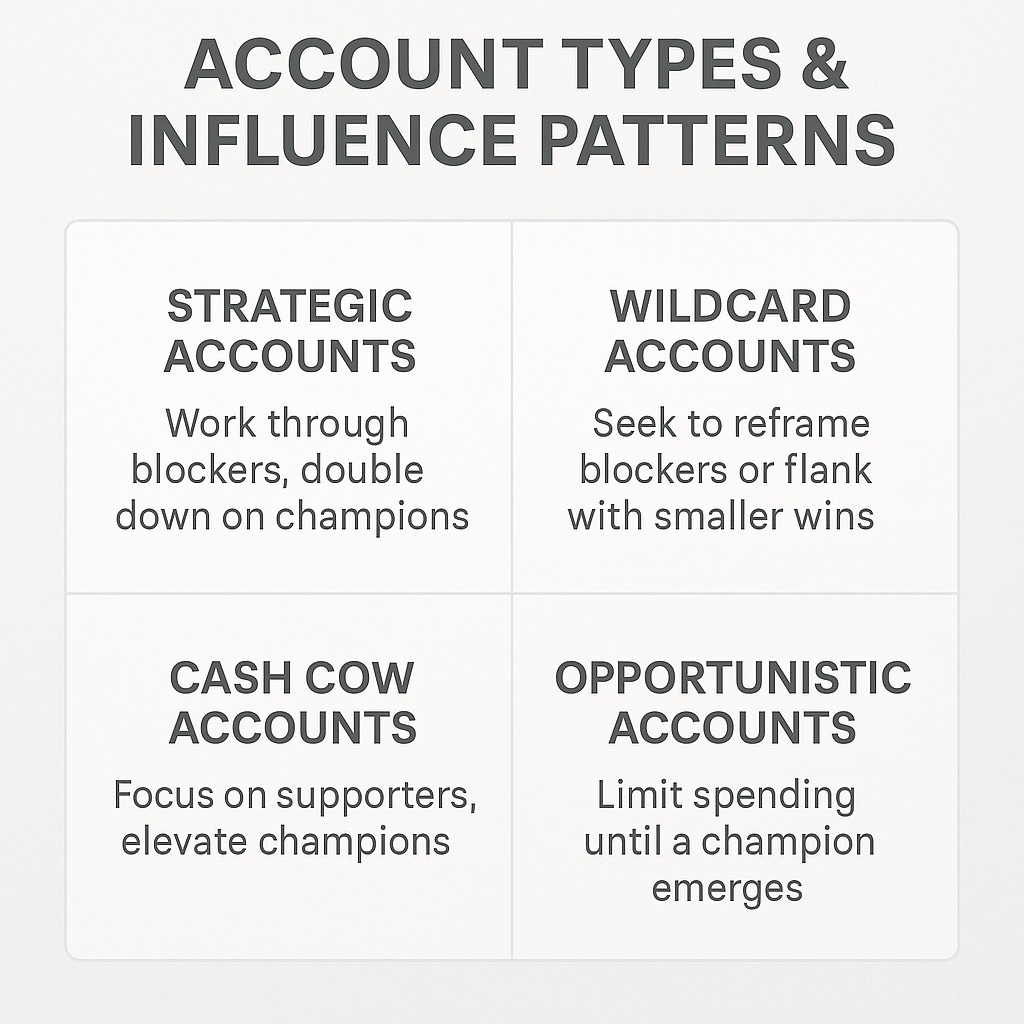Don’t Chase Titles, Chase Impact: A Playbook for Champions, Blockers, and Supporters
If you want to change the trajectory of your sales year or even your career, focus on the people who drive real change inside your accounts.
Too many reps chase titles. They name-drop big roles to impress their managers or to feel like they have “broken in.” But sales is not about titles. It is about impact.
In this article, I will share the frameworks I have built over 25 years leading enterprise SaaS sales. From Salesforce to DocuSign to advising today’s AI-native startups, these are the lessons that continue to deliver results.
We will look at how to:
Spot true champions vs friendly supporters
Neutralize blockers without wasting cycles
Unlock wildcard accounts that can multiply your number
Adjust your playbook based on account type
Why Titles Don’t Win Deals
Titles are deceptive. In the biggest deal of my career, the executives with the highest titles did not get the deal done. Two directors, four levels below the C-suite, had the real influence and impact that moved the company forward.
The lesson: Do not chase titles, chase impact. Champions are defined by the respect they carry inside the organization and the influence they have on decisions, not the title on their badge.
The 2x2: Influence vs Intent
To qualify the people you meet, use this simple matrix:
Champions (High Influence + Aligned Intent): They move deals.
Supporters (Low Influence + Aligned Intent): Helpful, but limited.
Blockers (High Influence + Opposed Intent): The most dangerous, but often the most valuable to engage.
Noise (Low Influence + Opposed Intent): Loud but irrelevant.
Spend 70 percent of your time on champions, 20 percent on blockers, 8 percent on supporters, and 2 percent on noise.
The ultimate move is converting a blocker into a champion. That is when accounts shift from stuck to strategic.
Supporters vs Champions
A common mistake: mistaking supporters for champions.
Supporters: They are friendly and they agree with you, but if they disappeared the deal would keep moving.
Champions: They have influence, they advocate for you when you are not in the room, and if they disappeared the momentum would stall.
Supporters are helpful, but champions are the ones who close deals. Do not stay in your comfort zone. Qualify hard and put your effort where it matters.
Blockers in Wildcard Accounts
Wildcard accounts are the most frustrating and the most valuable.
They have high potential but low probability because a powerful blocker holds the balance of power. These are the deals that can change your year or even your career.
There are two strategies to deal with blockers in wildcard accounts:
1. Direct Attack
Reframe the blocker’s perspective by showing gaps in the status quo and presenting a new lens. This is how I turned the biggest blocker in my career into my strongest champion.
2. Flank Strategy
Work around the blocker by solving adjacent problems. Win smaller departmental deals, build supporters, and position yourself to reframe later or benefit when the blocker eventually moves on.
Both strategies matter, but reframing the blocker directly is what changes the trajectory of the account.
Three Strategies to Handle Blockers Anywhere
Not every blocker is in a wildcard account. Here are three universal strategies you can use in any situation:
Flank – Work around them with smaller wins.
Trump – Find a more influential champion who can outmaneuver them.
Make Amends – Address their concerns and bring them to neutral. Partner with someone they respect so they do not pick a fight with you.
Do not ignore blockers and do not provoke them without stronger champions. Handle them with strategy, not avoidance.
Account Types and Influence Patterns
Your approach should change based on the type of account.
Strategic Accounts: Big revenue and long runway. Focus on champions, work blockers early, and avoid wasting time with supporters.
Wildcard Accounts: High potential and low probability. Defined by strong blockers. Direct Attack or Flank is the only way forward.
Cash Cow Accounts: Reliable renewals. Supporters are often enough to protect the base. If you find a strong champion, elevate them into a reference to help unlock your wildcard accounts.
Opportunistic Accounts: Low potential and low probability. Minimize time unless a champion emerges.
This is always a snapshot. Champions move, blockers emerge, and supporters fade. Reassess with your extended team every six months to reset your account strategy.
Closing Thoughts
Sales is not about titles, happy ears, or avoiding conflict. It is about finding the people who truly drive change and aligning your time with them.
Chase champions, not titles
Reframe blockers or flank them strategically
Recognize supporters for what they are
Align your playbook to the type of account
That is how you stop chasing deals and start changing the trajectory of your career.


